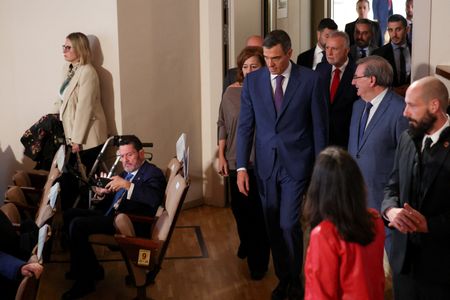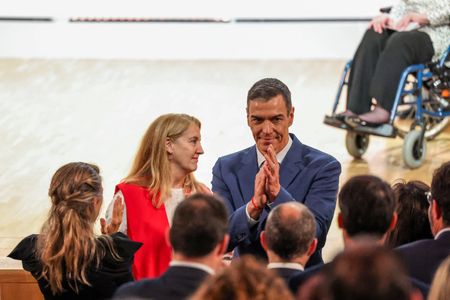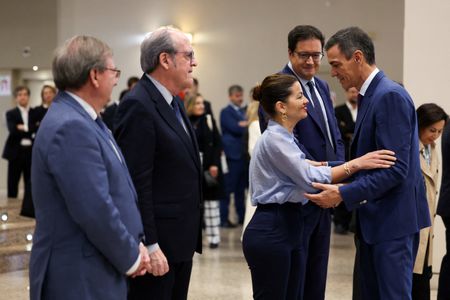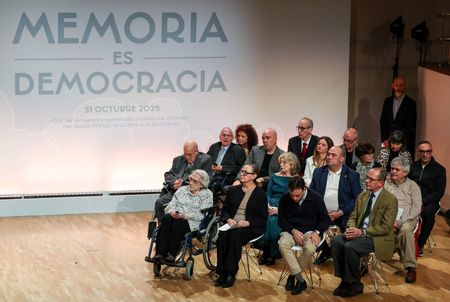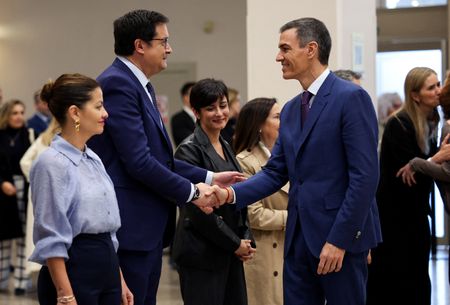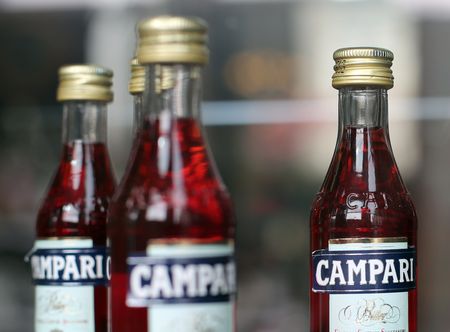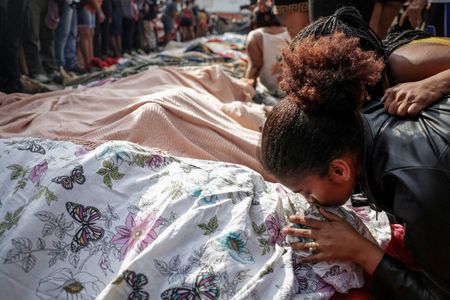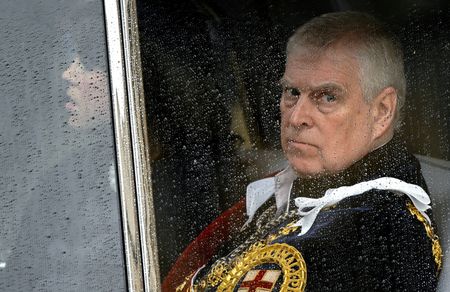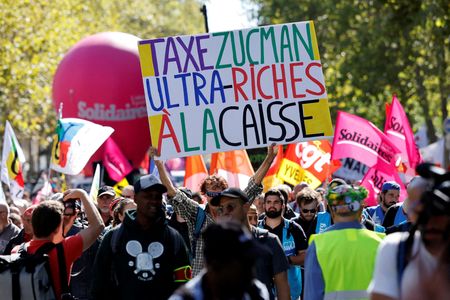By David Latona
MADRID (Reuters) -Spain’s leftist government paid homage on Friday to victims of the country’s civil war and the ensuing four-decade rule of General Francisco Franco, ahead of the 50th anniversary of his death.
Franco rose to power through a coup in July 1936 against the democratically elected Republican government, followed by the three-year war won by his army.
Government estimates say around 114,000 civilians disappeared, presumably killed by Franco’s forces, during the war and his subsequent rule.
At an event titled “Memory Is Democracy”, Prime Minister Pedro Sanchez thanked those who fought for a democratic Spain.
“It was necessary to dismantle an atrocious dictatorship imposed by force of arms, sustained by repression, and which stole the most basic rights and freedoms from millions of Spaniards,” he told an auditorium packed with relatives of Franco’s victims.
To standing ovations, Sanchez presented symbolic declarations of recognition and reparation to 18 living victims of repression and descendants of those by now deceased.
One was Maria Luisa Ramos, 98, who fled to France and survived the Nazi concentration camp of Mauthausen.
Another was the niece of poet and playwright Federico Garcia Lorca, who was murdered by fascist forces at the war’s onset. The whereabouts of Lorca’s remains are still unknown.
Sanchez lamented a wave of “revisionism that seeks to muddy our history in order to cloud our present, particularly for younger generations”, promoted by the rising far right, and vowed to protect the freedoms recovered since Franco’s death on November 20, 1975.
In 2022, the ruling coalition between Socialists and the hard left approved a Democratic Memory law tackling Franco’s legacy, ordering the removal of Francoist symbols, and promoting the search and exhumations of victims buried in mass graves.
However, Spanish society remains largely split along the right-left divide when it comes to how he is perceived today. A poll this month showed that 21.3% of Spaniards saw the Franco era as “good” or “very good” for the country.
(Reporting by David Latona; Editing by Andrei Khalip and Alison Williams)

